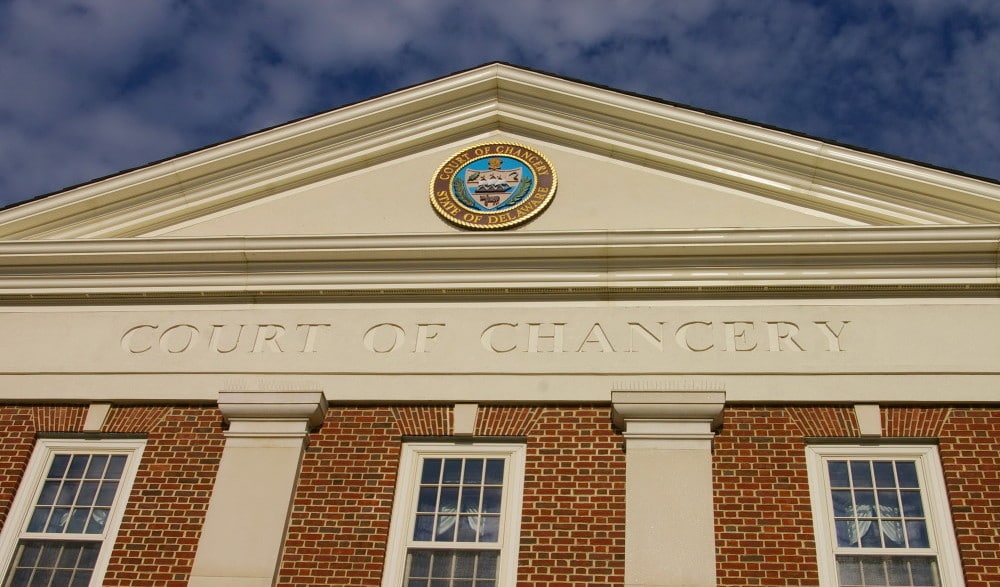No Court is more highly respected when it comes to business matters than the Delaware Chancery Court. The Court has a well-earned reputation for thoughtful consideration given complex business and economic matters and the decisions coming from that Court are cited regularly by the judiciary in other states and venues. The judges on the Delaware Court of Chancery are also well known for their sharp intellect and, sometimes, sharp tongues. One recent decision regarding a business valuation matter stands out for the court’s stinging rebuke of an outside financial firm that enabled a series of problematic transactions, as well as “special committee members tasked with scrutinizing the transactions for fairness. The case is referenced as, In re El Paso Pipeline Partners, L.P. Derivative Litigation, 2015 Del. Ch. LEXIS 116 (April 20, 2015)
Delaware courts have consistently held, in the context of Delaware limited partnerships, that clear, express and unambiguous language modifying default fiduciary duties will be enforced. However, as this case illustrates, even where default fiduciary duties have been modified or eliminated, a conflict of interest transaction may still run afoul of the contractual standards set forth in the partnership agreement.
In the spring and fall of 2010, a parent entity off-loaded interests in two subsidiaries to a master limited partnership (MLP) that it controlled through ownership of a company that served as the MLP’s sole general partner. As is usual, the MLP was organized as a pass-through entity for federal and state tax purposes. The transactions were acquisitions in which ownership interests “dropped down” from the parent to the MLP such that the parent could reap the tax benefit and obtain capital at the lowest possible cost. The subsidiaries owned a liquefied natural gas (LNG) import terminal and a natural gas pipeline. By 2010, there was decreasing demand for LNG imports, which had the parent company worried about the stability of long-term service contracts one subsidiary had with Shell and British Gas.
The dropdowns prompted several lawsuits in which the MLP’s common unit holders alleged the MLP paid inflated prices for the assets. Also, members of the special committee that had to approve the transactions breached the governing partnership agreement that required them to believe in good faith that the dropdowns were in the best interests of the MLP. The Chancery Court dismissed the claims related to the spring dropdown but allowed the fall dropdown claims to be challenged at trial. Subsequently the court said it expected that at trial the committee members and their financial advisor would provide a credible account of how they evaluated the fall dropdown. Instead, it found they “had no explanation for what they did.” The committee members “went against their better judgment and did what Parent wanted, assisted by a financial advisor that presented each dropdown in the best possible light, regardless of whether the depictions conflicted with the advisor’s work on similar transactions or made sense as a matter of valuation theory.”
The financial advisor did none of the “real work” an advisor to a committee does, the court said. The advisor’s “real client was the deal, and the firm did what it could to justify the Fall Dropdown, get to closing, and collect its contingent fee.”
The Chancery Court found instances of “nonfeasance” and “malfeasance.” When the committee asked the financial advisor to assess the parent’s proposed fall dropdown in light of the weakening LNG market, the advisor went to the parent for feedback. Not surprisingly, the parent replied that the situation was stable and the assets were solid. The financial advisor also manipulated valuation methodologies to make the parent’s asking price more palatable, the court said. While a financial advisor need not treat every transaction in the same way, “it would be surprising if every one of the changes moved the analysis in the same direction.” This happened here. The general partner breached the agreement and caused $171 million in damages, the court decided.
The overpayment was made possible because the financial advisor abdicated its responsibility to the special committee, whose members in turn subordinated their independent views to the parent’s wishes, the Chancery Court concludes. The El Paso decision is a reminder that, although contractual flexibility afforded to Delaware limited partnerships can be used to provide general partners with significant protections, there is still room for courts to scrutinize compliance with contractual standards.
Should you have questions or comments regarding this case, please contact Bob Grossman at 412.338.9300.






